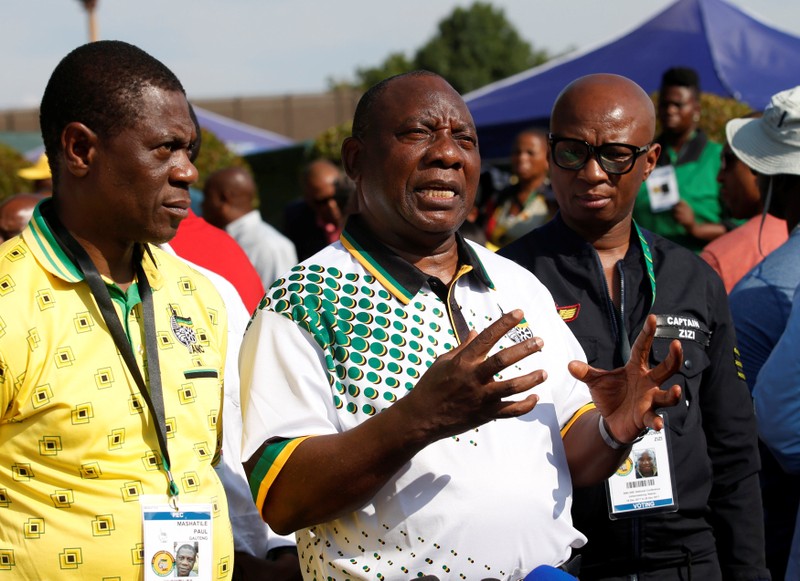
President of the African National Congress (ANC) Cyril Ramaphosa with Paul Mashatile (L) and spokesman Zizi Kodwa address the media at the Nasrec Expo Centre, where the 54th National Conference of the ruling party is taking place in Johannesburg, South Africa December 19, 2017. REUTERS/Rogan Ward
December 20, 2017
JOHANNESBURG (Reuters) – South Africa’s ruling African National Congress has adopted a resolution calling for the nationalization of the central bank and land expropriation without compensation, a senior party official said on Wednesday.
Any mention of nationalization in South Africa is enough to spook investors, since left-wing elements of the ANC have also called for mines and banks to be state-owned.
Similarly, land is an emotive issue two decades after the end of apartheid, and the ANC has been under pressure to redress racial disparities in land ownership.
Unlike most central banks in the world, the South African Reserve Bank has been privately owned since it was established in 1921. But its shareholders have no control over monetary policy, financial stability policy or banking regulation.
Following a meeting of party delegates, the head of the ANC’s economic transformation committee, Enoch Godongwana, told reporters the ownership of the South African Reserve Bank would not affect its independence.
He said the party had also agreed to initiate amendments to the constitution to achieve land expropriation without compensation, but gave no timeline. He said there would be no illegal occupation of land.
Following the proposal made in July by the ANC at a policy conference to nationalize the bank’s shareholding, South Africa’s Reserve Bank said that changing its shareholding would not affect its mandate, because that mandate is derived from the constitution.
Godongwana said no timeline had been laid down for the plan to acquire the central bank’s shares or for any directives to parliament to change the country’s laws to effect the change.
“No change in the constitution, no change in the Reserve Bank Act,” he said. “We’ve also said it’s not likely to have an impact at all because shareholders in the Reserve Bank do not affect monetary policy in any way.”
(Reporting by Alexander Winning and Ed Stoddard, writing by James Macharia, editing by Larry King)
